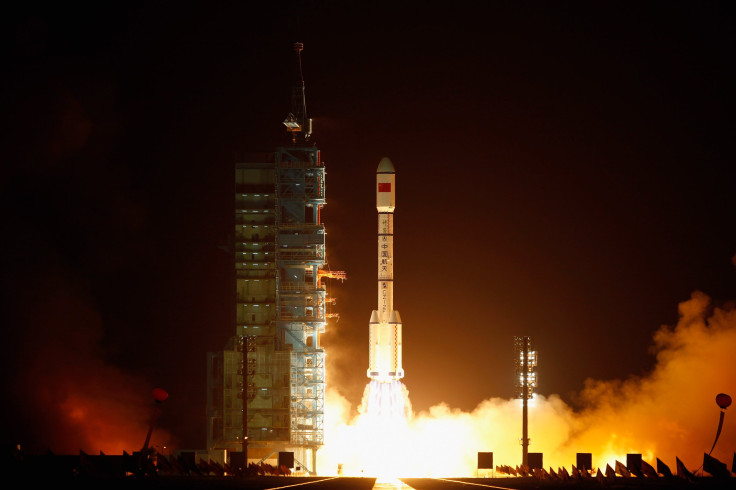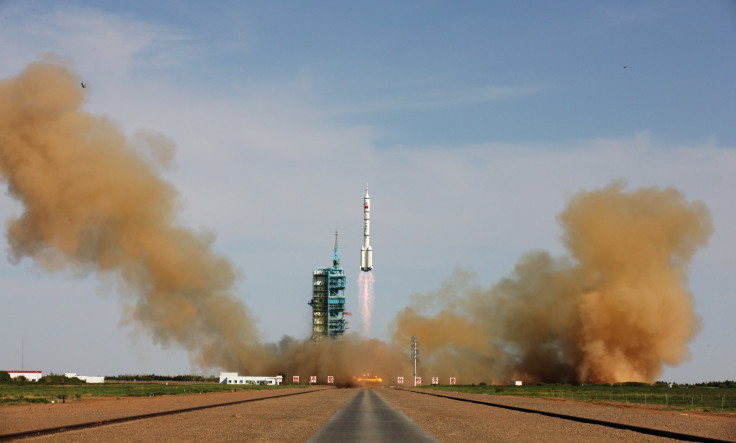China Sending Man To The Moon? Spacecraft Developed For Manned Lunar Mission

China has been developing an advanced spaceship designed to land on the moon, boosting their space capabilities in direct competition with the United States. Details regarding the project remained scarce, though the craft was compared to the Orion spaceship created by NASA and the European Space Agency.
The spacecraft will likely be recoverable and include room for multiple astronauts, the Associated Press reported Thursday, citing the newspaper Science and Technology.
Read: NASA Spacecraft Will 'Touch The Sun' To Prevent Space Weather Threats
In recent years, China has hustled to become a bigger player in the world’s space race, developing technologies to rival those out of Russia and the U.S. Though the nation only launched its first person into space in 2003, it has worked urgently to advance past other nations in its capabilities. China launched 22 rockets into space in 2016, the same number as the U.S., surpassing Russia, which launched 17, for the first time ever.

China also sent two astronauts to spend a month aboard a space station in 2016. The nation has toyed with the idea of building some sort of permanent station on the moon and sending a manned mission to Mars some time in the next few decades.
American engineers have been looking to the moon, as well. The U.S. was contemplating a manned mission to the moon sometime in early 2018. Such a mission would be the first time the U.S. has sent astronauts beyond low-earth orbit since the 1970s.
President Donald Trump has stated his intent to further space exploration during his presidency, vowing in an address to Congress last week to put “American footprints on distant worlds” by 2026.
"We stand at the birth of a new millennium, ready to unlock the mysteries of space, to free the Earth from the miseries of disease and to harness the energies, industries and technologies of tomorrow," Trump said in his inaugural address.
A $19.5 billion NASA bill was headed to the president’s desk after being approved by the House Tuesday. The bill would allocate money for the development of NASA’s space launch system heavy-lift rocket as well as its Orion deep-space exploration craft.
© Copyright IBTimes 2025. All rights reserved.






















